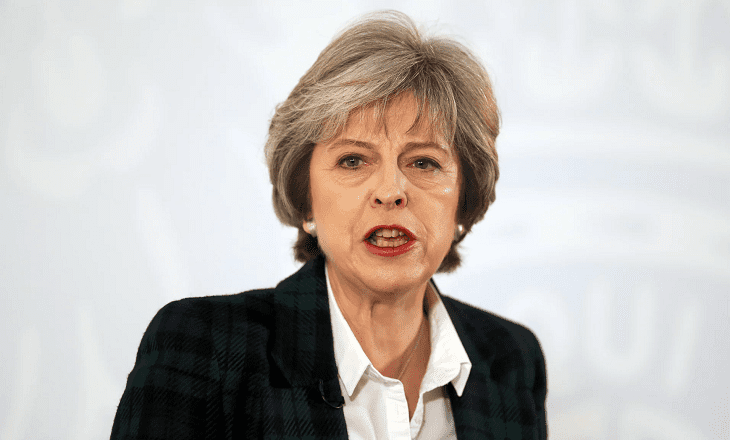It was one more week of churn, as the Brexit train hurdled down the track to who knows where. Even after two years of divisive debates, we seem no closer to a final decision. The options remain: delay, leave, or stay, with the latter looking dimmer everyday. The March 29 deadline is fast approaching, however, and something must happen on both sides of the channel, if a train wreck is to be avoided, at least for the present tense.
As for the week that was, MPs were scurrying about, taking three late night votes on mostly non-binding legislation, but each one designed to send a political message to Theresa May. The first vote was in support of a delay, the old “kick the can down the road” strategy, always favored by politicians when facing a deadline. They also voted to rule out a “no-deal” Brexit, which is what would happen on March 29 by default, if no plan were proffered to the EU. Lastly, the notion of holding another public referendum went down to a crashing defeat, if a 334 versus 85 vote fits that definition.

Theresa May is obviously caught between a rock and a hard place. She has already survived one no-confidence vote, but the Labour Party is salivating at the thought of another one. Per one pundit:
She still has her job, which is remarkable: In normal times, which seemed to end in the U.K. after the 2016 Brexit referendum, a prime minister who had suffered such stunning defeats would’ve resigned long ago. But Brexit has turned U.K. politics upside-down and created a new normal.
For the time being, the consensus is that that May will stay around a little bit longer.
What plan will May present to Parliament to support a request for an extension? May’s current outline for a plan, unfortunately, is the same “dead-on-arrival” plan that has already been voted down, not once, but twice by Parliament by outrageous margins. If MPs reverse their current positioning and back May’s plan, she would ask for an extension to June 30, “which is just before a new European Parliament will be seated.” Without a positive vote, a longer extension would be the request, which May hints will kill Brexit in the long run.
What do others think? According to Health Secretary Matthew Hancock: “It is still possible to deliver Brexit on the 29 March.” He also admitted that it would be “extremely difficult”, since, in his mind, there were only two options: “To vote for the deal and leave in orderly way or a long delay and I think that would be a disaster.” It also is no “slam dunk” to get approval for a delay from the EU. According to one EU spokesman, to extend the Article 50 mechanism past March 29 would require a unanimous vote by the 27 member states, not at all a certainty for the time being.
There is, therefore, a real possibility that a “no-deal” Brexit could take place, unless The U.K. government and Parliament can find a way to break the stalemate that has paralyzed politics in this country for the past several months. There are a few other plans be bandied about, but none of these have majority support, and a request for a longer extension could also have consequences: “EU might only grant a long extension on the condition the U.K. seeks a softer Brexit, holds a general election or a second Brexit vote.” Those MPs that want another referendum could soon be emboldened.
The thinking now is that May will be able to negotiate some kind of extension, but the issues related to Brexit may take many more years to finalize. Per one report: “Right now, Brussels and London are only arguing over the Brexit “divorce” arrangement, unwinding more than 40 years of economic integration. After they sort out the terms of withdrawal, they will have to negotiate a new free-trade agreement, which typically takes years — and which analysts say will be even more difficult than what we’ve been witnessing.” Contentious divorces can drag on for years over minor money issues.
What chaotic swings are in store for this week? We may all expect to see more scrambling by Theresa May and the MPs to get behind an agreeable extension request, as the March 29 deadline fast approaches, but the underlying issues that have driven Brexit and similar populist notions in the United States and Western Europe will not dissipate anytime soon. Issues such as national identity, immigration, economic globalization, and outright anger towards all politicians in general will continue to be divisive elements within our society, whether Brexit is delayed or not.